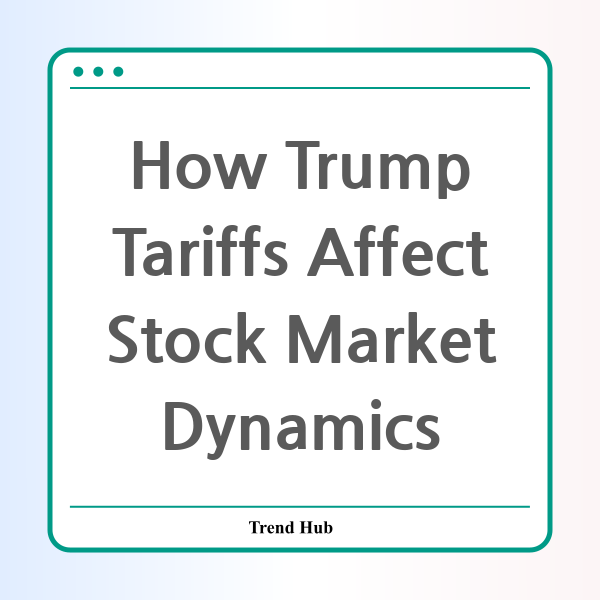* This website participates in the Amazon Affiliate Program and earns from qualifying purchases.

As Wall Street braces for what President Donald Trump has dubbed "Liberation Day" this week, the stock market is experiencing a whirlwind of uncertainty. Traders are keenly monitoring the impact that the impending tariffs will have on various sectors and the broader economy. With a slew of tariffs expected to come into effect, including a hefty 25% tariff on foreign-made cars, investors are visibly jittery.
The term "Liberation Day" has seemingly backfired, with many interpreting it less as a victory and more as a harbinger of instability. As stock futures fell on Sunday night, the market sentiment reflected a collective anxiety among investors regarding the repercussions of these tariffs. Futures tied to the Dow Jones Industrial Average dropped by 180 points (0.4%), while the S&P 500 and Nasdaq 100 futures plunged by 0.7% and 1.1%, respectively. These figures indicate a continuation of a downward trend that has had Wall Street on edge for much of March, with three major indices all poised for considerable monthly losses.
But what exactly does this mean for the average investor? For one, the tariffs can lead to increased costs for consumers and reduced profitability for U.S.-based manufacturers that rely on foreign components. This, in turn, can dampen consumer spending and potentially lead to slower economic growth, which is always a concern for investors.
Compounding this anxiety is the uncertainty regarding which countries will be affected by these new duties. The lead-up to the tariffs has been characterized by a lack of clear communication from the administration, driving speculation among investors who are desperate for guidance. With the market's fluctuation patterns showing that it has ended up in the red in five out of the last six weeks, the question looms: will the stock market find a stable footing or continue to slide?
Looking ahead, investors will also be keeping a close eye on forthcoming economic data, particularly the March jobs report that is set for release on April 4. Employment data has a significant impact on market sentiment, and a robust report could help lift some of the gloom that has settled over Wall Street. Additionally, figures on private payrolls and job openings will likely attract attention, providing deeper insights into the labor market's health.
Moreover, investors will want to watch for updates on services and manufacturing sectors following the tariffs' enactment. These areas can give clues to how domestic companies are coping with added costs and could influence stock performance in the days and weeks to come.
The upcoming week is expected to be slow on the earnings front, meaning that economic data could play a larger role in influencing stock prices than usual. Investors are left in a precarious position, weighing the risks of tariffs against the potential for economic growth and recovery.
As we move through a pivotal moment in U.S. trade policy, it will be crucial for investors to stay updated and prepared for volatility in the stock market. The connection between Trump’s tariffs and stock market performance will likely continue to unravel, making it all the more important for investors to keep a keen eye on developments.
* This website participates in the Amazon Affiliate Program and earns from qualifying purchases.